Texas News
The Texas GOP Divide: How Eight Republicans Ignited the Paxton Impeachment Fire
Who are the 8 Texas House Republicans most responsible for the sham impeachment of Attorney General Ken Paxton?
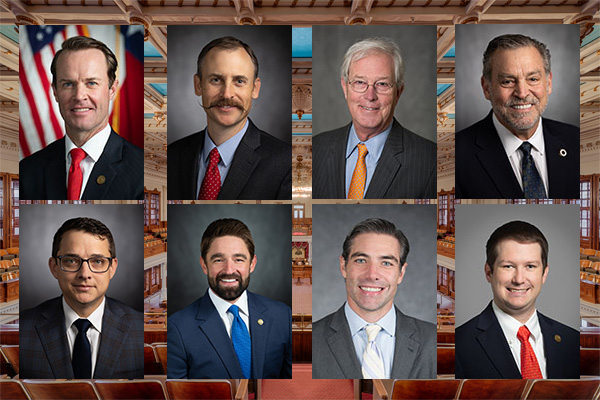
The recent impeachment proceedings against Texas Attorney General Ken Paxton have thrust eight Republican members of the Texas House into the spotlight. Their involvement in what some are labeling a “sham impeachment” has ignited a firestorm of debate, compelling us to examine the motivations behind their actions and the consequences for the state’s political landscape.
The saga began when Texas House Speaker Dade Phelan appointed a bipartisan group of lawmakers, seven Republicans and five Democrats, to the House General Investigating Committee. This committee filed an impeachment resolution, consisting of a staggering 20 articles, laying bare a yearslong pattern of alleged misconduct and lawbreaking by Attorney General Ken Paxton.
State Representative Andrew Murr, the committee’s chair, underscored the gravity of the allegations, justifying their action as a response to “grave offenses.”
However, the impeachment proceedings took an unexpected turn when the Texas Senate acquitted Attorney General Paxton on all 16 articles brought against him. The remaining 4 articles were later dismissed. This decision has ignited infighting within the Republican Party, revealing a disturbing rift between true conservatives who support Paxton and the establishment RINOs (Republicans in Name Only), including individuals with ties to the Bush and Rove families.
This discord has not gone unnoticed by conservative commentators such as DC Draino, who celebrated Paxton’s acquittal as a victory against the so-called “Bush cartel.” In the wake of his exoneration, Paxton released a defiant letter aimed at the White House, vowing to “BUCKLE UP” in the face of what he described as a “sham impeachment” orchestrated by Texas RINOs with connections to the Bush and Rove family networks.
It’s worth noting that this political turmoil extends beyond Paxton’s acquittal, as Jeb Bush’s son, George P. Bush, has expressed aspirations to assume Paxton’s role, further complicating the political landscape.
In the following analysis, we will delve into the backgrounds and political histories of each of these eight Republican members of the Texas House, shedding light on their roles in the impeachment proceedings and their connections to the broader Republican party. This exploration will provide a comprehensive view of their actions and decisions, allowing us to assess whether they should be held accountable for their roles in what many perceive as a political spectacle rather than a genuine pursuit of justice.
House Speaker Dade Phelan (R) District 21
Dade Phelan, the 76th Speaker of the Texas House, finds himself in turbulent waters as calls for his resignation grow louder in the wake of the impeachment proceedings against Attorney General Ken Paxton. The Texas Republican Party’s executive committee passed a resounding resolution over the weekend, voting 58 to 2, urging Phelan to step down from his leadership position. If he does not comply, the committee is pushing for fellow House members to vacate the speaker’s chair.
Phelan, a Republican representing District 21 in Beaumont, is currently in his fourth term as a State Representative. Prior to his tenure as Speaker, he held several influential positions within the House, including Chair of the House Committee on State Affairs, Vice-Chair of the Natural Resources Committee, and membership in the Calendars, Appropriations, and Elections Committees, as well as the Select Committee on Ports, Innovation, and Infrastructure.
In a dramatic turn of events, Phelan’s political fortunes have taken a hit since 2019 when Texas Monthly hailed him as one of the Best Legislators of the 86th legislative session. Now, facing mounting pressure from fellow Republicans, the once-prominent leader is fighting to retain his position.
One factor that could complicate Phelan’s political survival is the upcoming 2024 elections for District 21. Historically, he has sailed into office unopposed since 2016, without challengers in either the Republican primary or the General election. However, this time around, the landscape has changed with two challengers already stepping into the fray – Alicia Davis and Shilo Platts – and others potentially following suit.
Challenging Phelan won’t be an easy task, as Transparency USA reports he has amassed a substantial war chest, with over $5 million in cash on hand. Notably, Harlan R. Crow stands as his top contributor, having donated $75,000 during the 2024 election cycle. Other major contributors include Lauril and Erie A Nye Jr. ($50,000), Russell T. Kelley ($50,000), and $25,000 from each of the following: Carl Sewell Jr., Catherine and Sam Susser, Greg Arnold, Richard Weekley, Texans for Lawsuit Reform PAC, and Trevor Rees-Jones.
Phelan’s financial support extends further, with at least 37 high-dollar donors contributing $1,000 or more. These contributions hold more than just monetary value; they represent votes and influence. Each of these donors wields the power to sway numerous voters through various political channels during the upcoming primary election.
Andrew Murr (R) House District 53
In spite of his strong Texan roots, originating from the heart of Hill Country, and a family history deeply entrenched in the realm of Texas politics, recent events have cast a shadow of doubt over his once-stellar reputation.
The tenure of Mr. Murr as the chair of the House General Investigating Committee has become a source of contention among political circles. His pivotal role in the impeachment proceedings against Attorney General Paxton has sparked widespread disapproval, with numerous voices raising questions about his underlying motivations and soundness of judgment. Furthermore, his active participation in the inquiry and subsequent expulsion of Bryan Slaton, a fellow Republican embroiled in scandal, has left a bitter taste in the mouths of his constituents.
Although Mr. Murr’s academic qualifications and prior experiences may impress on paper, they provide little solace to the palpable discontent brewing within his own party. Public censure by the Texas Hill Country Republican committee has been swift and harsh, with accusations of straying from the core principles of the Republican Party and overstepping his authority. They vehemently assert that his actions during the impeachment proceedings not only breached the law but also ran afoul of the Constitution, a transgression that undermines the very bedrock of democracy.
The scathing censure issued by the Bandera County GOP stands out as particularly biting. They accuse Murr of actively working against the will of the people by spearheading an “illegal, unconstitutional impeachment proceeding to overturn the November 2022 election, thereby denying the will of WE THE PEOPLE.” This quote encapsulates the depth of their disdain for Murr’s actions and serves as a striking indictment of his conduct.
As the specter of the next election looms large on the horizon, it becomes increasingly evident that the discontent surrounding Mr. Murr’s conduct has ignited a blaze of resentment within his own political camp. The clamor for a primary challenge against him continues to gain momentum, with a growing number fervently believing that he no longer embodies the values and integrity expected of a Republican representative.
Charlie Geren (R) House District 99
A stalwart of the Republican Party, representing House District 99 since the dawn of the millennium in 2001, is now on the cusp of concluding his current term on January 14, 2025. His constituency includes the city of Fort Worth, an unfortunate circumstance according to some of its residents.
Selected by Speaker Phelan himself, he assumed a role on the general investigating committee, a five-member body consisting of three Republicans and two Democrats. Tasked with delving into the impeachment proceedings of Attorney General Ken Paxton, this committee also bore the responsibility of investigating allegations against then-Representative Bryan Slaton of Royse City. Slaton’s resignation from the House, triggered by revelations of an inappropriate relationship with a 19-year-old aide, followed the committee’s inquiry.
Remarkably devoid of any legal credentials, this legislator boasts an impressive 23-year tenure in the Legislature, solidifying himself as one of its most enduring members. During his time, he earned a reputation as a stringent budget advocate and a resolute conservative, all while maintaining a notably dry sense of humor.
Additionally, this legislator holds a seat on the House investigative committee. In a surprising turn of events, he vociferously challenged Attorney General Paxton’s assertion that the impeachment proceedings were politically motivated. The committee even entrusted him with articulating one of the more personal allegations against Paxton, accusing the attorney general of making threatening calls to lawmakers on the House floor, insinuating political repercussions if they supported the 20 articles of impeachment. No evidence was presented to substantiate this claim during the impeachment proceedings.
When pressed by local media to comment on the gravity of the vote, this legislator responded with characteristic nonchalance, stating, “It’s a big decision. But that’s why I get paid $19.72 every day.” A display of humor that some might find incongruous with his role.
Throughout his career, this legislator has found himself at odds with the far-right faction of his party on multiple occasions. In 2019, while chairing the Committee on House Administration, he clashed with allies of Attorney General Paxton, who pursued legal action after being denied House media credentials. Earlier this year, he staunchly defended House Speaker Dade Phelan’s decision to appoint Democrats to chair several committees, much to the chagrin of Texas GOP leaders. This legislative session, he led an ambitious but ultimately fruitless campaign to expand casino operations in Texas, showcasing an uncanny talent for championing causes that ultimately fall short.
Charlie Geren’s political career could be likened to a masterclass in obstinacy, ineffectiveness, and a curious misalignment with the base of his party. It becomes increasingly apparent that his continued presence in office may hinder the aspirations of those who entrusted him with their votes. Whether voters will take decisive action to remove this long-standing figure in the upcoming election remains to be seen.
David Spiller (R) House District 68
Spiller has established his political dominion across a vast expanse that spans 12 counties, an unwieldy territory stretching over 300 miles. Situated comfortably in Jacksboro, Texas, Spiller boasts a legal career as an attorney at the Spiller & Spiller law firm and serves as the proprietor of Spiller Title.
With nearly four decades of legal experience, Spiller proudly presents himself as one of the staunchest conservatives to grace the Texas House. His claim to fame includes receiving commendations and endorsements from prominent groups such as the Young Conservatives of Texas and the Texans for Lawsuit Reform, headquartered in Austin.
In the realm of higher education, Spiller graduated with pride from St. Mary’s University School of Law in 1986. His résumé showcases an extensive tenure as Jacksboro’s city attorney since 1987, and in an equally impressive capacity, he has served as the general counsel for the Jack County Hospital District since 1990.
Spiller’s entrance into the House came after a special election in 2021, followed by a series of bills seemingly aligned with the Republican agenda. These bills encompassed proposals to enhance penalties for illegal voting, address regulations regarding participation in sports based on gender identity, and tackle issues related to rural broadband access. With the support of Speaker Phelan, he secured a seat on the House investigative committee, where he collaborated with Johnson to meticulously lay out the impeachment allegations against Paxton.
In a dramatic speech delivered before the House, Spiller showered Attorney General Paxton with praise for his “legal acumen” and accomplishments in his role. However, he displayed a jarring flip-flop by imploring his colleagues to impeach Paxton, condemning him for purportedly violating his oath of office.
“One would think that no one, especially not the highest law enforcement officer in the Lone Star State, should escape the reach of justice,” Spiller declared. “We simply cannot stand idly by and witness this unfold. We must take action.”
If Spiller’s inconsistency and opportunism have left you disillusioned, it’s time to seriously consider supporting a primary challenger in the upcoming election to unseat this political chameleon.
Briscoe Cain (R) House District 128
Briscoe Cain has firmly established himself as a leading conservative voice in the Texas House. Despite only five years in the legal profession since 2016, Cain’s rapid ascent in the political arena can be attributed to his unwavering dedication to his principles. He has effectively utilized the legal system to advance his agenda, with a significant focus on his staunch opposition to abortion.
Cain has garnered support from various anti-abortion groups and proudly holds the position of legal counsel for Operation Rescue, an organization deeply committed to the pro-life cause. Furthermore, his role on the board of Right to Life Advocates underscores his steadfast commitment to this critical issue.
Cain’s approach to politics and the law is undeniably bold. In a notable case from March, he lent his support to a Texas man who filed a wrongful death lawsuit against three women, accusing them of contributing to his ex-wife’s decision to terminate her pregnancy. Moreover, in 2022, he proactively issued cease-and-desist letters to eight nonprofit organizations that were assisting women in seeking abortions out of state, cautioning them about potential criminal consequences.
However, Cain’s political journey extends beyond his stance on abortion. Following the 2020 presidential election, he journeyed to Pennsylvania to collaborate with Donald Trump’s campaign in an effort to investigate allegations of election irregularities. During this endeavor, he conducted interviews with election workers and poll watchers. Despite his initial alignment with Trump, Cain’s recent divergence from both Trump and Paxton over his support for an impeachment vote has led to a rift with both political heavyweights.
Trump has openly criticized Speaker Phelan and denounced Paxton’s impeachment as “election interference.” He has expressed strong support for Texas Attorney General Ken Paxton, declaring, “Free Ken Paxton, let them wait for the next election!” Trump has vowed to challenge any Republican who opposes Paxton, further isolating Cain within the party.
In a surprising departure from his previous alliances, Cain openly endorsed the impeachment vote, asserting that the House’s role is to determine whether sufficient cause exists to warrant a Senate trial. His statement emphasized that his duty was not to pass judgment on the guilt or innocence of any individual but to evaluate whether probable cause existed to substantiate the allegations against General Paxton.
Cain’s rapid rise in the political arena has been marked by a steadfast commitment to his conservative principles. While his position on abortion has earned him support from like-minded groups, his recent decisions and rift with former allies have left him politically vulnerable within the Republican party. It is increasingly likely that the next election will see Cain facing a primary challenge, as many within his party question whether he truly represents their interests or pursues a personal agenda.
Jeff Leach (R) House District 67
Jeff Leach stands at a pivotal juncture, prompting many to call for a change in his political trajectory. Leach, an attorney specializing in commercial and civil litigation, construction law, and real estate, currently presides over the House Judiciary and Civil Jurisprudence Committee. Nevertheless, his lengthy tenure in the House, which spans back to 2013, has sparked legitimate concerns about his suitability for the upcoming Republican primary.
While Leach may emphasize his endorsement of bipartisan criminal justice reforms, recent legislative initiatives have raised eyebrows and cast doubt on his alignment with conservative principles. His active promotion of a bill proposing changes to Texas’ anti-SLAPP (Strategic Lawsuit Against Public Participation) laws drew criticism, particularly from journalists who feared these changes could potentially pave the way for frivolous and financially burdensome lawsuits designed to stifle free speech.
During the recent impeachment proceedings against Attorney General Paxton, Leach underwent a notable transformation in his stance, voting in favor of impeachment and citing sufficient probable cause to warrant the allegations proceeding to the Senate. Despite his previous claim of being a close friend and mentee of Paxton, their relationship has undergone a noticeable deterioration over the years. Leach once enjoyed an open-door invitation to engage with Paxton, but those lines of communication ceased, and the door was firmly shut. This shift in loyalty and convictions is evident.
As the next Republican primary looms on the horizon, voters must seriously contemplate whether Jeff Leach genuinely represents their values and interests. His track record raises valid questions about his consistency and dedication to the principles he once professed to hold dear. Perhaps the time has come for a fresh face to step onto the political stage, injecting new vigor and unwavering commitment into the Republican cause within House District 67.
Rep. Morgan Meyer, (R) – House District 108
Chairman Meyer is the representative for House District 108, a diverse area encompassing multiple regions of Dallas, including Downtown Dallas, Uptown Dallas, East Dallas, Preston Hollow, North Dallas, Lake Highlands, the City of University Park, and the Town of Highland Park.
Since assuming office in 2014, Meyer has touted his extensive experience as a commercial litigator spanning more than two decades. As a partner at the Dallas office of the Wick Phillips law firm, his expertise lies in representing businesses entangled in complex commercial litigation and appeals across various sectors, including telecommunications, banking, insurance, and energy.
Meyer’s educational background includes an undergraduate degree from Southern Methodist University and a law degree from Washington and Lee School of Law. Notably, he has been recognized as a “Rising Star” by Texas Super Lawyers on eight occasions. Additionally, Meyer emphasizes his commitment to pro bono legal work, providing legal services to those who may not otherwise have access to them.
However, a closer look at Meyer’s financial support paints a more complex picture. He has amassed nearly a million dollars in campaign contributions from special interest groups and political action committees (PACs) statewide. Among these contributions, significant sums exceeding $240,311.66 have come from energy and oil special interest groups, while over $240,986.92 have originated from finance and real estate entities. Meyer’s donor list also includes contributions exceeding $30,000 from anti-consumer groups, attorneys, members of the construction sector, lobbyists, and insurance groups. This financial backing raises concerns about his dedication to the interests of his constituents, as some argue he may be overly influenced by these donors.
Meyer’s voting record appears to align closely with his financial benefactors. He has consistently voted against measures such as establishing a committee to investigate construction contract issues and limiting local governments’ authority to regulate new construction. Furthermore, he supported HB 1736, a bill that stripped local governments of their power to set energy efficiency standards and provided generic providers with non-competitive pricing.
It is worth noting that Meyer has served as the chair of the Ways and Means Committee for two terms and previously presided over the General Investigating Committee.
Cody Thane Vasut (R) House District 25
Mr. Vasut, recognized for his unwavering conservative stance during his tenure in the House since 2021 as a Texas Freedom Caucus member, has recently caused a stir by aligning himself with the Bush faction of the party in his unexpected vote to impeach Attorney General Paxton.
In the aftermath of this surprising vote, Vasut sought to rationalize his decision by underscoring that it was grounded solely in the assessment of whether there existed enough evidence to justify a Senate trial, completely devoid of any political considerations. He expressed, “Political factors hold no relevance. My conscience compels me to cast a ‘yes’ vote on this matter.”
It is worth noting that Vasut, a former Angleton City Council member, boasts over a decade of experience in the legal field, predominantly handling civil cases associated with the energy industry while in the employ of the Baker Hostetler law firm. However, in August, he made a significant career move by establishing his own law practice, as indicated by records from the secretary of State. This decision mirrors his recent political realignment, which has distanced him further from the core principles traditionally associated with the Freedom Caucus.
The Democrats
In the midst of this tumultuous political drama, it is imperative not to overlook the role played by the five Democrats on the committee who voted in favor of the impeachment of Texas Attorney General Ken Paxton. However, it should be noted that given their party affiliation, their positions are often perceived as inherently biased in the eyes of many. Consequently, it goes without question for some that Texas citizens need to prioritize a reevaluation of their representation by voting them out of office. These Democrats—Joe Moody, Ann Hohnson, Erin Elizabeth Gamez, Terry Canales, and Oscar Longoria—have contributed to the contentious nature of this impeachment process, further emphasizing the need for a thorough examination of the entire political landscape in the Lone Star State.
Election
Texans to Vote on 17 Constitutional Amendments, with Historic Homestead Exemption in Spotlight
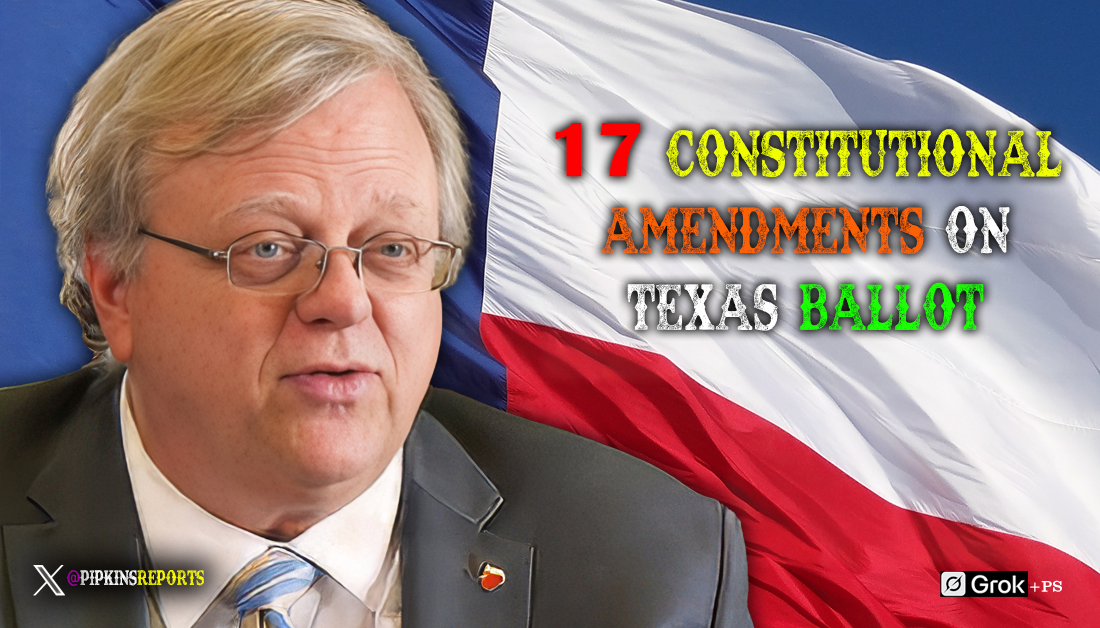
AUSTIN, TX — On November 4, Texas voters will face a marathon ballot featuring 17 proposed amendments to the state’s constitution, a document that has seen over 500 revisions since 1876. Secretary of State Jane Nelson, who oversaw the ballot order draw, urged Texans to seize this chance to “make your voice heard about the governing document of our state.” From tax relief to judicial reform, these propositions reflect a conservative vision of limited government, economic liberty, and state sovereignty. But one measure, Proposition 13, stands out as a landmark effort to deliver substantial property tax relief to homeowners—a cornerstone issue for Texans grappling with rising costs in a state without an income tax.
Proposition 13: A Game-Changer for Homeowners
At the heart of this constitutional lineup is Proposition 13 (SJR 2), which would raise the homestead exemption for school district property taxes from $100,000 to $140,000, with an even higher $150,000 exemption for seniors and disabled homeowners. Paired with a tax rate compression in Senate Bill 1, this measure promises an average savings of $496.57 for homeowners, according to Sen. Paul Bettencourt (R-Houston), the bill’s author. In a unanimous vote, the Texas Senate signaled its commitment to easing the property tax burden, a perennial concern for Texans facing skyrocketing appraisals.
For many, Proposition 13 is a lifeline. Bettencourt noted that 80 to 90% of Texas seniors could pay zero school district property taxes under this plan, as would average homeowners in 49% of Texas school districts where home values fall below $140,000. This is no small feat in a state where property taxes fund much of public education. To address concerns about local revenue losses, Bettencourt emphasized that the state would reimburse school districts, ensuring they remain fully funded. “Today, the Texas Senate delivered a win for homeowners statewide,” he declared, framing the measure as a victory for taxpayers without sacrificing educational quality.
Yet, some lawmakers raised red flags during Senate debates, warning that local taxing entities—cities, counties, and special districts—might offset these savings by raising their own rates. This tension underscores a broader challenge: balancing tax relief with the fiscal needs of local governments. For constitutional conservatives, Proposition 13 embodies the principle that government should prioritize returning money to citizens, but voters must weigh whether the state’s reimbursement plan can prevent local tax hikes that could erode the promised relief.
A Broader Conservative Agenda
While Proposition 13 takes center stage, the remaining 16 amendments advance a robust conservative agenda. Proposition 2 (SJR 18) bans taxes on capital gains—realized or unrealized—protecting wealth creation from state overreach. Proposition 6 (HJR 4) shields securities transactions from occupational or transactional taxes, bolstering financial markets. Proposition 8 (HJR 2) prohibits death taxes on estates or inheritances, ensuring families keep more of their legacy.
Other tax relief measures include Proposition 5 (HJR 99), exempting animal feed held for retail from ad valorem taxes, and Proposition 9 (HJR 1), which extends similar exemptions to income-producing personal property. Proposition 7 (HJR 133) offers tax breaks for surviving spouses of veterans with presumed service-connected conditions, while Proposition 10 (SJR 84) provides temporary exemptions for homestead improvements destroyed by fire. Proposition 11 (SJR 85) further boosts exemptions for elderly and disabled homeowners, complementing Proposition 13’s focus on homestead relief.
Infrastructure and education also feature prominently. Proposition 1 (SJR 59) creates a permanent fund for the Texas State Technical College System, supporting trade programs vital to Texas’ economy. Proposition 4 (HJR 7) dedicates sales tax revenue to the Texas Water Fund, addressing water scarcity in a growing state. Proposition 14 (SJR 3) establishes a $3 billion Dementia Prevention and Research Institute, though its hefty price tag raises questions about fiscal priorities.
Safety, Sovereignty, and Civic Values
Public safety and border security are addressed in Proposition 3 (SJR 5), which mandates bail denial for certain felony offenses, and Proposition 17 (HJR 34), which offers tax exemptions for border security infrastructure in counties along the U.S.-Mexico border. Both align with conservative priorities of law and order and state sovereignty, though the latter’s vague definition of “infrastructure” warrants scrutiny.
Cultural and civic concerns shine through in Proposition 15 (SJR 34), affirming parents as the primary decision-makers for their children—a rebuke to institutional overreach in schools and healthcare. Proposition 16 (SJR 37) clarifies that only U.S. citizens may vote, reinforcing election integrity amid national debates. Proposition 12 (SJR 27) reforms the State Commission on Judicial Conduct, enhancing accountability for judicial misconduct, a move conservatives will welcome as a check on judicial power.
With early voting from October 20-31 and a registration deadline of October 6, Texans must act swiftly to study these amendments. Detailed information is available at VoteTexas.gov. Proposition 13, with its promise of historic tax relief, may dominate headlines, but the full slate demands careful consideration. Each amendment shapes the delicate balance between individual liberty and public needs, a balance constitutional conservatives hold dear.
As Texas voters head to the polls, they carry the weight of self-governance. In a state fiercely proud of its independence, this election is a chance to reaffirm principles of limited government and personal freedom—nowhere more so than in Proposition 13, which could redefine the financial burdens of homeownership for millions. The question is whether Texans will embrace this vision or demand greater clarity on its long-term impacts.
Featured
Attorney General Ken Paxton Secures $1.4 Billion Settlement with Meta Over Unauthorized Biometric Data Capture

Texas Attorney General Ken Paxton has successfully negotiated a $1.4 billion settlement with Meta Platforms, Inc. (formerly known as Facebook) over allegations of unauthorized biometric data collection. This settlement, the largest ever obtained from a single state’s action, underscores the importance of protecting privacy rights in the digital age and sets a new precedent for holding technology giants accountable.
Background and Context
The roots of this historic settlement trace back to 2011 when Meta introduced a feature known as Tag Suggestions. This feature, designed to improve user experience by making it easier to tag individuals in photographs, operated by using facial recognition technology to automatically identify people in photos uploaded to Facebook. While the feature was promoted as a convenience, it also involved the surreptitious collection and use of biometric data without users’ informed consent.
Biometric data, which includes unique identifiers such as facial geometry, is considered highly sensitive due to its permanent and unchangeable nature. Recognizing the potential for abuse and the need for stringent protections, Texas enacted the “Capture or Use of Biometric Identifier” Act (CUBI) to regulate the collection and use of such data. Under CUBI, businesses are required to inform individuals and obtain their explicit consent before capturing their biometric identifiers.
However, Meta’s implementation of facial recognition technology violated these legal requirements. The company turned on the Tag Suggestions feature by default, capturing biometric data from millions of Texans without proper disclosure or consent. This practice persisted for over a decade, impacting virtually every user who uploaded photos to the platform.
The Legal Battle
In February 2022, Attorney General Ken Paxton filed a lawsuit against Meta, accusing the company of violating Texas’s biometric privacy and consumer protection laws. The lawsuit argued that Meta’s actions not only breached CUBI but also constituted deceptive trade practices under Texas law. The primary allegations included:
- Unauthorized Biometric Data Collection: Meta collected biometric identifiers from Texans without their informed consent, a clear violation of CUBI.
- Deceptive Practices: By failing to disclose the true nature and extent of its data collection practices, Meta misled users about the privacy implications of using its platform.
- Privacy Violations: The unauthorized use of facial recognition technology posed significant privacy risks, given the sensitive nature of biometric data.
Attorney General Paxton’s office emphasized the significance of the case, noting that it was the first lawsuit brought and the first settlement obtained under Texas’s CUBI Act. The legal action aimed not only to secure justice for affected Texans but also to send a strong message to other companies about the importance of complying with privacy laws.
Settlement Details
After two years of vigorous litigation, the parties reached a settlement agreement in 2024. Meta agreed to pay the state of Texas $1.4 billion over five years, marking the largest privacy settlement ever obtained by an Attorney General. This settlement dwarfs the previous record, a $390 million settlement a group of 40 states obtained from Google in late 2022.
The settlement includes several key provisions designed to ensure future compliance and protect Texans’ privacy rights:
- Consent Requirement: Meta must obtain explicit, informed consent from users before collecting any biometric data. This includes clear and conspicuous disclosures about the types of data being collected and the purposes for which it will be used.
- Data Deletion: Meta is required to delete all previously collected biometric data that was obtained without proper consent. This includes data collected through features like facial recognition.
- Transparency Measures: Meta must implement enhanced transparency measures, providing users with easy access to information about the data being collected and how it is being used. This may involve updates to privacy policies and user interfaces.
- Compliance Audits: Meta will be subject to regular compliance audits to ensure adherence to the new data collection practices. These audits will be conducted by an independent third party, with the results reported to the Texas Attorney General’s office.
- User Control: Meta must provide users with greater control over their biometric data, including options to opt-out of data collection and to request the deletion of their data at any time.
- Training and Policies: Meta is required to implement comprehensive training programs for its employees on data privacy and biometric data handling. Additionally, the company must establish and enforce internal policies to ensure compliance with the new requirements.
Statements and Reactions
Attorney General Ken Paxton hailed the settlement as a significant victory for Texans and a warning to other companies. “After vigorously pursuing justice for our citizens whose privacy rights were violated by Meta’s use of facial recognition software, I’m proud to announce that we have reached the largest settlement ever obtained from an action brought by a single State,” Paxton stated. “This historic settlement demonstrates our commitment to standing up to the world’s biggest technology companies and holding them accountable for breaking the law and violating Texans’ privacy rights. Any abuse of Texans’ sensitive data will be met with the full force of the law.”
The legal teams involved in the case also played a crucial role in securing the settlement. Keller Postman and McKool Smith served as co-counsel to the Texas Attorney General’s office, with Zina Bash, Sam Baxter, and Jennifer Truelove leading the litigation efforts. Their aggressive litigation posture and expertise in privacy law were instrumental in achieving this landmark outcome.
Implications and Future Impact
The $1.4 billion settlement has far-reaching implications for both Meta and the broader technology industry. For Meta, the financial penalty and mandated changes to its data collection practices represent a significant shift in how the company handles biometric data. The settlement serves as a wake-up call, highlighting the need for transparency and user consent in data-driven business models.
For the technology industry, the case sets a new standard for privacy protection and regulatory compliance. It demonstrates that state governments can and will take decisive action against companies that violate privacy laws, regardless of their size or influence. The settlement may encourage other states to enact or strengthen their biometric privacy laws, leading to increased scrutiny of data collection practices nationwide.
Privacy advocates have lauded the settlement as a major step forward in safeguarding consumer rights. The case underscores the importance of robust legal frameworks to protect individuals from unauthorized data collection and misuse. As digital technologies continue to evolve, ensuring that privacy laws keep pace with technological advancements remains a critical priority.
Conclusion
The $1.4 billion settlement between Texas and Meta marks a historic moment in the fight for digital privacy. It reflects the determination of Attorney General Ken Paxton and his team to hold technology companies accountable for violating privacy rights and sets a powerful precedent for future enforcement efforts. As Texans benefit from the strengthened protections and increased transparency resulting from this settlement, the case stands as a testament to the importance of vigilant oversight and robust legal safeguards in the digital age.
People
Daniel Miller and the TEXIT Debacle: The Incompetence that Doomed a Movement

In the expansive realm of Texas politics, Daniel Miller, the dynamic President of the Texas Nationalist Movement (TNM), has been a fervent advocate for the TEXIT movement since its inception in 1996. Recognized on major news networks and international outlets, Miller’s charismatic stance on Texas independence has positioned him as a central figure in the Lone Star State’s political landscape. As the face of the TEXIT movement, Miller’s leadership warrants scrutiny, delving into both successes and challenges that shape the narrative of his tenure.
Background History of Daniel Miller:
Daniel Miller, a sixth-generation Texan, brings a unique blend of tech consultancy and entrepreneurial spirit to the TEXIT movement. His political journey, however, is marked by setbacks. In the 2012 House District Republican primary, Miller faced a formidable defeat against Allan Ritter, securing only 27% of the votes. Undeterred, he ventured into the 2022 Texas Lt. Governor primary, yet the outcome echoed his previous loss, with Dan Patrick commanding 76% of the votes and Miller securing a distant second with just 7%. These early challenges in Miller’s political career provide context for the hurdles he would later navigate in steering the TEXIT movement toward its goal of Texas independence.
The Texas Nationalist Movement (TNM):
The TNM, under Daniel Miller’s leadership since its evolution in 2005, has become a pivotal force in Texas politics, not because of Miller’s involvement, but in spite of it. Evolving from a faction of the old Republic of Texas, the TNM’s mission is explicit: “the complete, total and unencumbered political, cultural and economic independence of Texas.” Operating as an unincorporated association, the TNM’s focus on peaceful political advocacy, education, and the pursuit of a statewide referendum sets the stage for the TEXIT movement. Miller’s role extends beyond advocacy, as he testifies on legislation and participates in conferences globally, solidifying the TNM’s status as a formidable political entity.
Series of Failures:
Referendum Mishaps:
The handling of the TEXIT referendum became a critical juncture in Miller’s leadership. He failed to understand the law and submit ballots on time. He failed to understand the legal requirement for wet signatures. And technical glitches on the petition website likely meant that many more signatures could have been obtained. These missteps not only delayed the movement’s momentum but raised questions about the TEXIT leadership’s competence and preparedness.
The technical failure of the petition website was particularly problematic. For days, perhaps weeks, programming errors plagued the platform, preventing individuals from completing the registration process. The system’s incapacity to rectify errors disenfranchised countless individuals. The severity of these issues questioned the TEXIT movement’s technological infrastructure and its ability to navigate complex legal processes. We should also mention that this is actually the type of business that is Miller’s main job … and it failed miserably.
TEXITCON Press Restrictions:
The TEXITCON event, which was a great idea that was long overdue, faced a critical misstep under Miller’s leadership – a failure to allow free press opportunities. The Texas Liberty Journal’s attempts to secure a press pass were met with complete silence, pointing to a broader issue of restricted media coverage and public awareness. Access to the event would only be possible if one paid for admission. This is not how the press operates and any amateur event organizer would know this. This communication breakdown not only hindered media engagement but also raised concerns about the real motivations of the event. Was it about awareness and organization? Or was it just about making money?
This press restriction holds broader implications. Limited media coverage restricts the dissemination of information about the TEXIT movement’s goals, progress, and activities. The absence of a robust media presence opens the door to misinformation and limits constructive public discourse. In a movement where public perception is pivotal, stifling media access has far-reaching consequences, potentially isolating the TEXIT movement from valuable feedback and alternative viewpoints.
Legal Troubles and Financial Irregularities:
a. IRS Closure of 501c(4):
A significant episode under Miller’s leadership was the closure of TNM’s 501c(4) status by the IRS in May 2023. This move may signal legal troubles or it may once again represent incompetence. In the very least it represents a lack of transparency as no mention of this has been made by the TNM. The closure raises questions about the internal governance and financial practices of the Texas Nationalist Movement Inc. as well. Did they stop being a non-profit? Where is the money from the online store going?
The IRS closure unveils a broader challenge in managing the legal aspects of the movement. As a key advocacy organization, maintaining compliance with federal regulations is paramount. The closure not only tarnishes the image of the TNM but underscores the importance of robust governance mechanisms in movements of this nature.
b. Business Registration Shell Game:
Further scrutiny reveals a concerning practice – the shelling of the Texas Business Registration through another company, “TNM Protective Services, LLC.” This maneuver introduces an element of opaqueness into the organizational structure. Coupled with the inactive status of the “Texas Nationalist Movement Foundation Inc”, this prompts questions about organizational transparency and accountability.
The use of multiple entities and the status of these entities raise concerns about financial practices and organizational integrity. Advocating for political, cultural, and economic independence necessitates a level of transparency that aligns with the movement’s core values. The complexities in business registration demand a closer examination of the TEXIT movement’s financial strategies and its commitment to ethical conduct.
c. Lost Domain Name
When Miller launched his book in 2020 “Texit: Why and How Texas Will Leave The Union“, the back cover of his book listed his domain as www.DanielMiller.com. Sometime after the publication he lost control of his own domain. This often happens when the owner fails to pay the renewal fee to their domain host. Generally, domain names run about $15.00 / year but when the owner fails to renew a domain, ‘squatters’ can jump in and grab it. Often, they will then jack up the price and hope that the owner will pay to have it restored. For common names, or names of celebrities, the fee can go up quite a bit. In this case, DanielMiller.com is currently offered for sale at $79,888.
Few in their right mind would pay such a fee and such a domain name is only valuable to a person who shares this name…that’s a pretty small market. This appears to be the case for Miller who has subsequently registered the domain www.DanielOMiller.com … adding the ‘O’. But the question remains, how does one fail to renew their own domain name? What does it say about a person’s management skills that they would fail at such a simple task? Miller has not returned our inquiry so we are unable to get his side of the story.
The Elusive Financial Trail:
The uncertainty surrounding the online TEXIT product store adds another layer to this financial opaqueness. With little information available about the revenue distribution and the company handling these transactions, questions linger about the accountability of the TEXIT movement. Transparency in financial matters is not just a legal requirement but a moral obligation, especially for a movement that seeks to empower Texans in determining their destiny.
Conclusion: A Call for Renewed Leadership in the TEXIT Movement
As we meticulously examine Daniel Miller’s leadership of the TEXIT movement, a pattern of failures and incompetence emerges, raising serious questions about his ability to steer the movement forward after over two decades. The challenges faced, from referendum mishaps to the restrictions on press freedom and legal and financial irregularities, paint a concerning picture of the movement’s current trajectory.
Delayed ballot submissions, a lack of understanding about legal requirements, and technical failures on the petition website, showcase a level of incompetence that is detrimental to a movement striving for Texas independence. These missteps not only hinder the momentum of TEXIT but also cast doubt on Miller’s capacity to navigate the intricate legal and technological landscape that such a movement demands.
The press restrictions observed at TEXITCON further underscore a deficiency in leadership. In a movement that claims to champion transparency and democratic principles, stifling media access raises serious concerns about accountability and openness. The lack of media engagement limits public awareness and stifles constructive discourse, hindering the movement’s ability to gain broad support.
The IRS shut down the 501c(4), a move that typically happens after a company fails to turn in its forms for 3 consecutive years. The questionable business registration practices that hide who is running the company reveal an unsettling lack of governance and transparency. For a movement that advocates for the political, cultural, and economic independence of Texas, such financial opaqueness is not just a red flag; it is a fundamental betrayal of the ideals the movement professes.
After more than 20 years under Miller’s leadership, it becomes imperative for the people invested in the TEXIT movement to critically assess its direction. The numerous failures and shortcomings raise a pivotal question: Is Daniel Miller the right leader to guide the movement into the future? A movement takes more than passion to succeed, it takes leadership, experience, and competence. Perhaps it is time for the people to seek out a new representative who can bring these fresh perspectives and a strategic understanding of the complexities of politics.
Moving the TEXIT movement forward requires adept leadership that can learn from past mistakes, adapt to challenges, and effectively navigate the intricate web of politics, legality, and public relations. The vision of a free and independent Texas is too significant to be hindered by the failures of the past. It is time for the people to seek a leader who can reinvigorate the movement, inspire confidence, and, most importantly, lead Texas toward a future that aligns with the aspirations of its people.
-

 Election1 week ago
Election1 week agoAbbott’s Backroom Play: How Greg Abbott Used a Legal Loophole to Install Kelly Hancock as Texas Comptroller Without Senate Confirmation
-

 Featured5 days ago
Featured5 days agoAbbott’s Veto of SB3 Saves Texas Hemp Industry, Sparks Battle Over Regulation
-
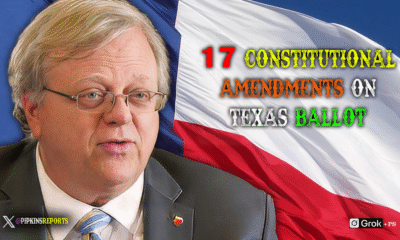
 Election2 days ago
Election2 days agoTexans to Vote on 17 Constitutional Amendments, with Historic Homestead Exemption in Spotlight




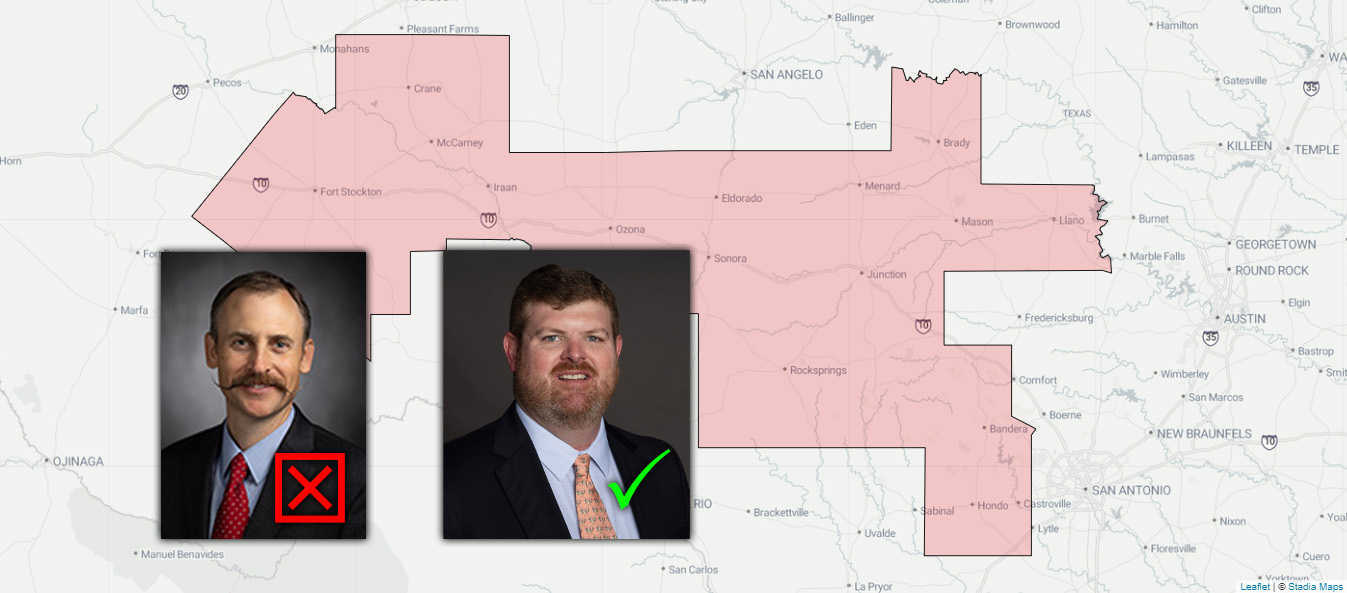


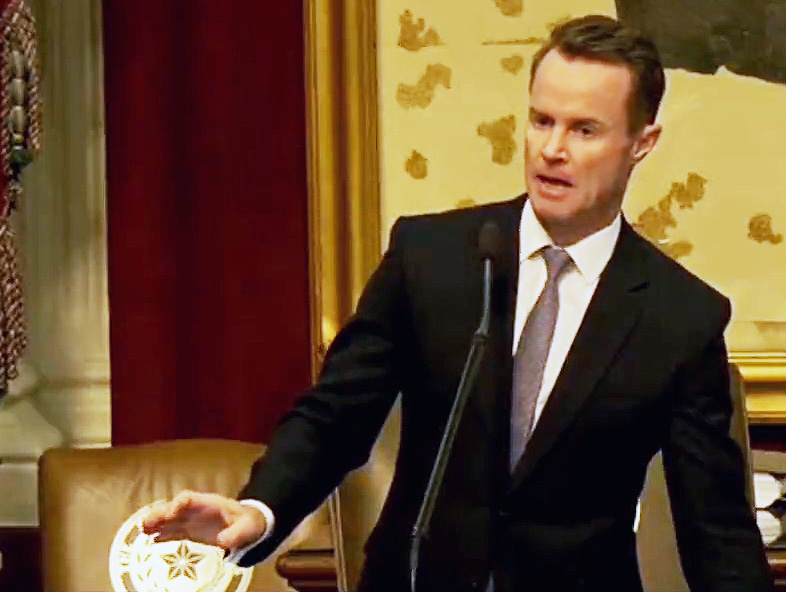
You must be logged in to post a comment Login